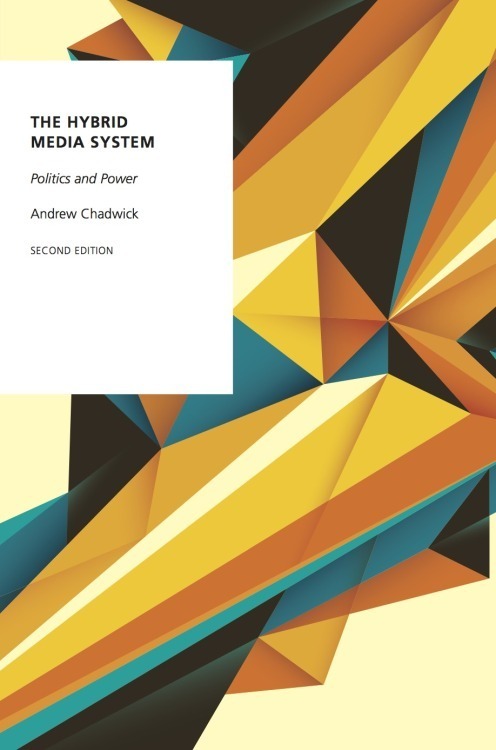“Dual Screening the Political” Wins the Walter Lippmann Award
/I’m recently back from the American Political Science Association (APSA) Conference, which was, as usual, an excellent gathering, full of great papers on many aspects of media and politics.
This year the highlight for me and my colleagues, Cristian Vaccari and Ben O'Loughlin, was being presented with the Walter Lippmann Award from APSA’s Political Communication Section. The Award, which honours the best article published in the field of political communication in the past year, was given for our piece: Cristian Vaccari, Andrew Chadwick and Ben O’Loughlin 2015. “Dual Screening the Political: Media Events, Social Media, and Citizen Engagement” Journal of Communication 65 (6).
We thank the award committee—Philip Habel, David Weaver, and Abby Jones for their generous remarks at the award presentation.
This article was a lot of fun to design, research, and write. The research design alone took four months of development and testing and there were several technical challenges during the UK’s Clegg-Farage EU debates that we needed to overcome to generate the large sample of Twitter users whom we were able to survey twice.
Live, real-time research has many potential risks but it’s worth it, because when it works, we can really get inside what mediated engagement means to citizens in an era when classic media events have been reconfigured by social media.
We were also able to introduce a panel element into the research that enabled us to isolate the longer-term impact of dual screening on individuals’ political engagement. Our findings about the impact of specific social media practices and serendipitous exposure surprised us somewhat. You’ll have to read the article to find out more.
At APSA we presented the second study in our dual screening mini-series. In this new paper—Andrew Chadwick, Ben O’Loughlin, and Cristian Vaccari “Why People Dual-Screen Political Debates and Why It Matters for Democratic Engagement"—we assess the importance of dual screeners’ motivations to acquire information, share information and opinions, and influence others, including their own Twitter followers, Twitter users in general, politicians, and journalists. We then analyze the links between these motivations and individuals’ sense of agency and their short-term and longer-term political engagement.
For this piece we used a similar event-based panel survey design but this time we focused on the main 2015 UK general election debate (Wave 1=2,351; Wave 2=1,168). The findings were also surprising, particularly in relation how dual screening practices can boost the immediate post-debate engagement and longer-term cognitive engagement of those who, in our sample, were comparatively less politically interested and less politically efficacious. We also unearthed some intriguing findings on how gender shapes the motivations and outcomes associated with dual screening. Stay tuned for more detail on this research in due course!




